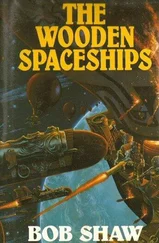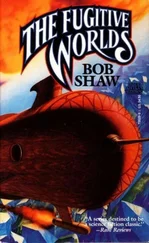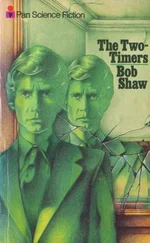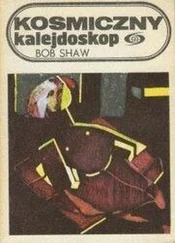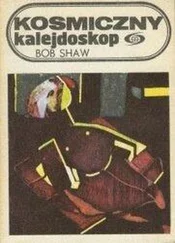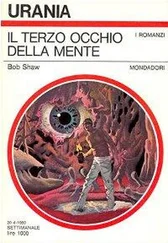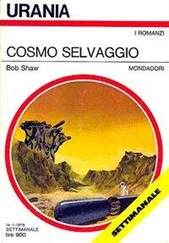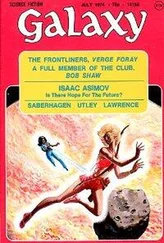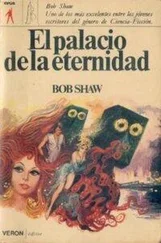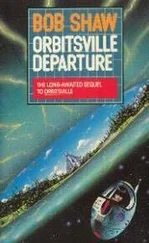“I beg your pardon.”
Atwood sighed heavily, hugely. “I said, what do you do, lad? For a living?”
“At the moment, nothing.” Hutchman had not expected to be quizzed, and spoke coldly to ward off any further questions.
“But when you’re doing something, what is the something you do?” Atwood appeared not to notice he had been snubbed.
“Ah… I’m a designer.”
“Hats? Knickers?” Atwood gave a pleased guffaw.
Hutchman realized he had chosen too exotic a profession. “No. Steel-framed buildings. I’m more what you might call a draftsman.”
Atwood looked impressed. “Good job, that. Plenty of work for draftsmen in these parts.”
“Yes — that’s why I’m here. I’m going to take it easy for a few days, then have a look around.” Hutchman felt he had woven an acceptable story.
“I’m a greengrocer, myself,” Atwood said. “Do you take a sup?”
“Beer? Sometimes.”
“Good. As soon as you’ve finished that we’re going down to the Cricketers for a few pots of ale.”
“Thanks, but I think I’d prefer not to have a drink this evening.”
“Nonsense,” Atwood bellowed. “I’m not talking about that southern piss. We’re going to have some good Lancashire ale.” He directed a fierce look at Hutchman’s plate, which was still almost full. “Get that into you, lad. No wonder you’re so skinny…”
“That’s enough, George,” Mrs. Atwood snapped “Rember Mr. Rattray’s a guest in this house.”
“Hold your tongue!” Atwood scowled at her, his massive chin jutting. “Isn’t that why I’m inviting him to have a drink?”
Hutchman felt the boy move uneasily beside him, his breathing becoming noisier. “It’s all right, Mrs. Atwood. I can see that your husband is being hospitable, and on second thought maybe I should go out for an hour.”
Atwood nodded. “That’s more like it. Now finish your supper, lad.”
Hutchman met his gaze squarely as he pushed the plate away. “If I eat a lot, I can’t drink afterward.”
When the meal was over he went up to his room, put on his jacket, and looked out into the night. It had begun to rain and the tiny segments of rooms floating in the darkness seemed more dismal than they had on the previous night. George Atwood was a hulking lout, an insensitive animal who dominated others by his sheer size, but an evening in his company would be better than an evening alone in the room with the advancing floral walls. Vicky , the thought came against his will, look what you’ve brought me to .
He went back downstairs, walked into the kitchen, and saw his own face on the screen on the television set in the corner. Jane Atwood was watching a news program, with her back turned toward the door, and she did not see him enter the room. He left without being heard and waited in the dimly-lit hall for George Atwood to appear. The news bulletin was substantially the same as the one he had heard in the car while driving north — which might be an indication that he had been connected with the antibomb machine. He had provided the authorities with a good, publicly acceptable reason for hunting him down. They would be able to use every communication medium to the limit, and only a few people might stop to wonder why a mere witness in an abduction case was receiving so much prominence. The photograph being broadcast was hauntingly familiar to Hutchman, with its mottled background suggestive of foliage, but he could not remember where it had been taken or who had held the camera. No doubt all his friends and acquaintances had been questioned by the police and possibly by men from some nameless branch of the security machine. Was it possible? Hutchman counted the hours — this was Tuesday evening and the Britain-bound envelopes had not been posted until Monday.
It’s too soon , Hutchman decided, relaxing slightly after the uneasy experience of seeing himself on the screen. I can cope with the police, and the others still have no idea who it is they have to hunt.
“Right, lad!” Atwood bustled out of another door, wearing a hairy coat which gave him bearlike proportions. His sparse locks had been slicked down across his enormous skull with water. “Where’s your car?”
“Car?” Hutchman had parked his car on a cindery patch at the side of the house, and had been planning to leave it there.
“It’s raining out there, lad.” Atwood spoke with ponderous exactitude. “My van is out of action and the Cricketers is a good half-mile from here. If you think I’m going to walk it in the rain, think again.”
Hutchman, needled by the other man’s unvarying boorishness, was tempted to call the expedition off, but reminded himself that the car no longer fitted the broadcast description. It would, in any case, be no more noticeable in a pub car-park than sitting virtually on its own beside the house.
“My car’s just outside the door,” he said. They ran to it in chilling rain. Atwood jigged impatiently until Hutchman opened a door for him, then he threw himself into the seat with an impact that rocked the car on its suspension. He slammed the door with similar violence, making Hutchman wince.
“Let’s go,” Atwood shouted. “We’re wasting good drinking time.”
As he started up the engine Hutchman tried to recapture the odd craving for pints of stout which had gripped him on Sunday night on the way to Crymchurch police station, but all that happened was that he got a cold feeling in his stomach. With Atwood directing, he drove out to the main road, the blue-white lighting of which emphasized the drabness of the buildings, and along it for a short distance to an unimpressive red-brick inn. Hutchman surveyed the place gloomily as he got out of the car. On every past occasion when he had become involved with a dedicated beer drinker and been dragged off to the area’s reputed sole source of good ale the pub concerned had always turned out to be remarkably dismal. This one was no exception to what apparently was a natural law. As they ran to the entrance through the rain he experienced a sad conviction that it was a warm starry night far to the south in Crymchurch. I’m lonely without you, Vicky…
“Two pints of special,” Atwood called to a barman as soon as they got inside the public bar.
“Make that a pint and a whisky,” Hutchman said. “A double.”
Atwood raised his eyebrows and parodied Hutchman’s homecounties accent. “Ho, pardon flipping me! If you wants whisky, Trevah, you can flipping well pay for it.” He leaned on the dark wood of the counter, shaking with amusement, then doggedly pursued his joke. “Ay’m reduced to common beastly beer this month — pater has cut may allowance, you see.”
Giving way to his annoyance, Hutchman took the thick roll from his pocket and threw a five-pound note onto the counter without speaking. When his drink came he drained the glass. The liquid warmed his stomach immediately, then seemed to follow an anatomically impossible radiant course into the rest of his body. During the following two hours he drank fairly steadily, paying for most of the rounds, while Atwood engaged the barman in a long, repetitious dialogue on football and greyhound racing. Hutchman wished for someone to talk to, but the barman was a tattooed youth who viewed him with scarcely veiled hostility; and the only other customers were silent, raincoated men who sat on bench seats in darker recesses of the room.
Why is everybody doing this? He was filled with a dull wonder. Why are they all here, doing this?
There was a doorway behind the counter which led into the select bar, and through it Hutchman caught brief glimpses of a queenly barmaid. She seemed to laugh a lot, gliding easily through the cozy orange light of the other room. Hutchman prayed for her to come and talk to him, vowing he would even refrain from looking down her blouse if she would only lean on his part of the bar and talk to him and make him feel partly human again. But she never entered the public bar and Hutchman, absurdly, was trapped with Atwood. As his loneliness grew, the familiar lines from Sassoon returned with almost unbearable poignance… and tawdry music and cigars, I oft-times dream of garden nights, and elm trees nodding at the stars… his throat closed painfully… I dream of a small fire-lit room, and yellow candles burning straight, and glowing pictures in the gloom, and friendly books that hold me late…
Читать дальше

